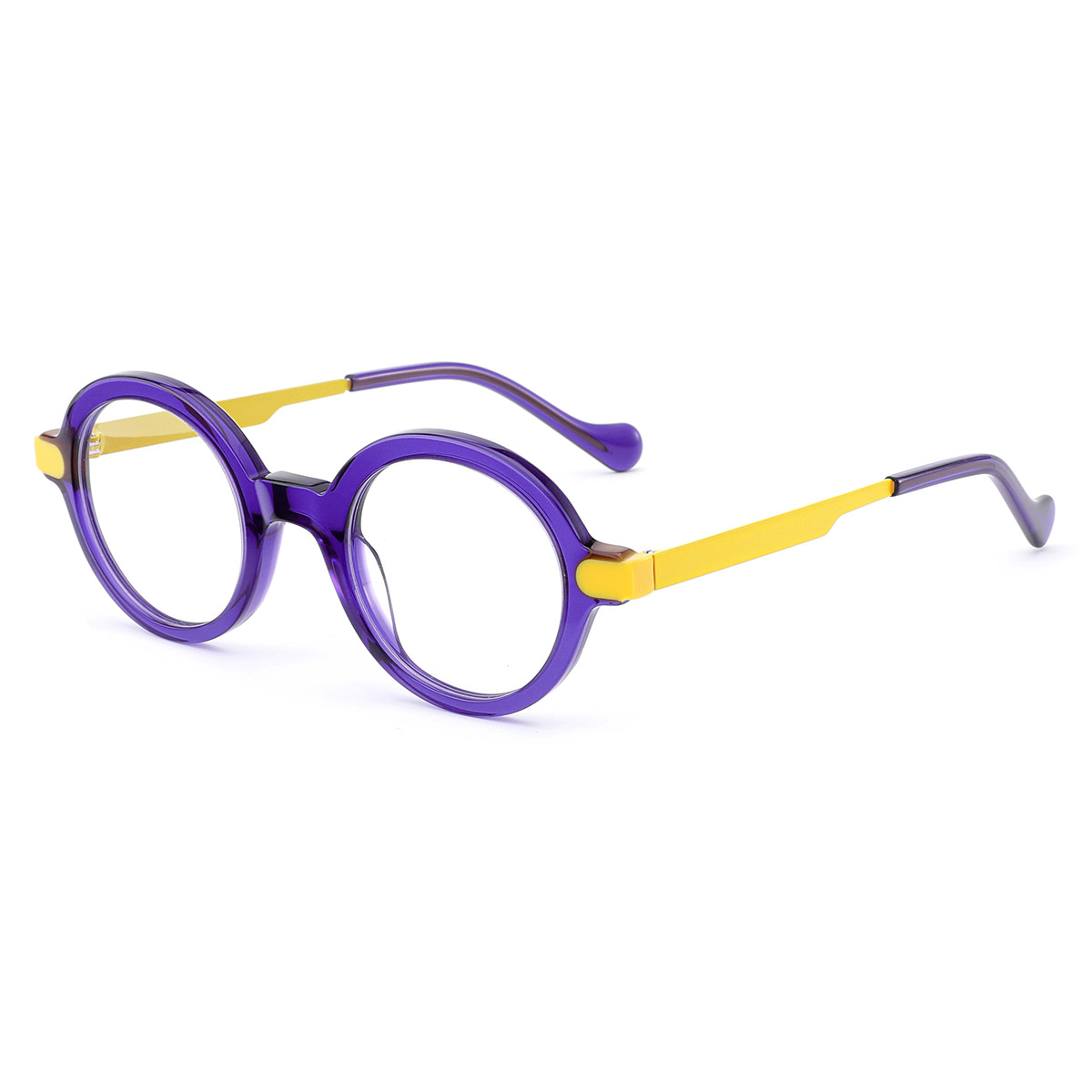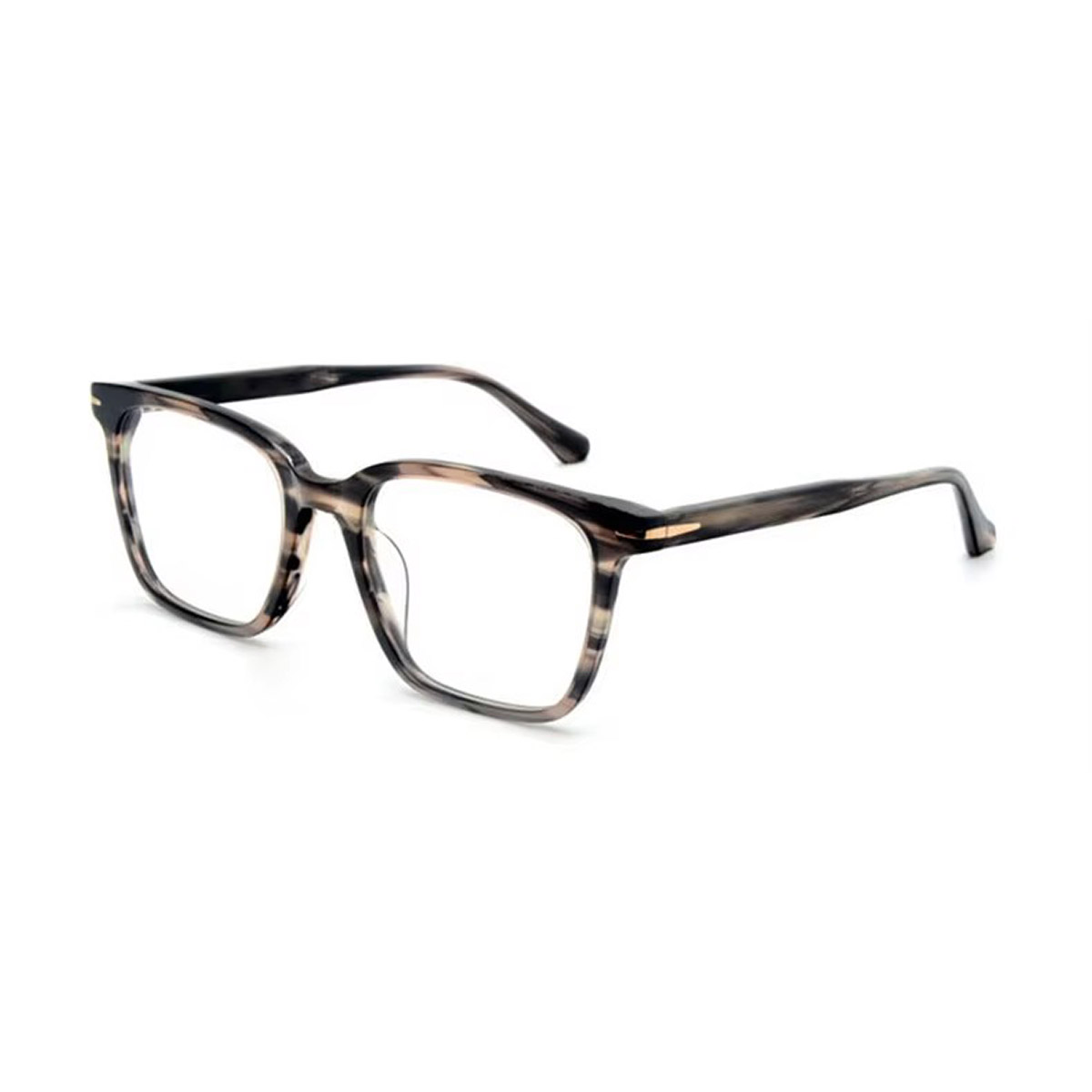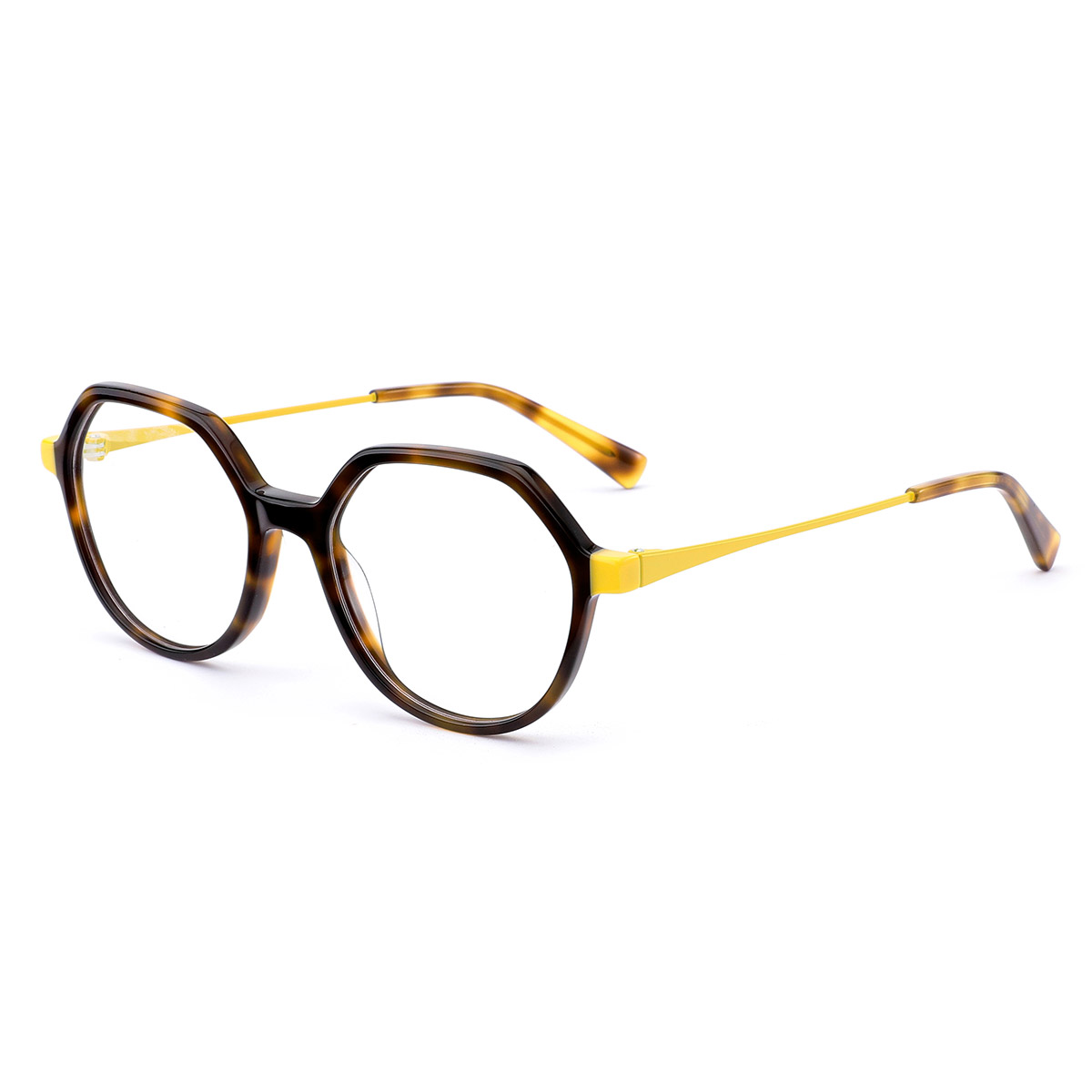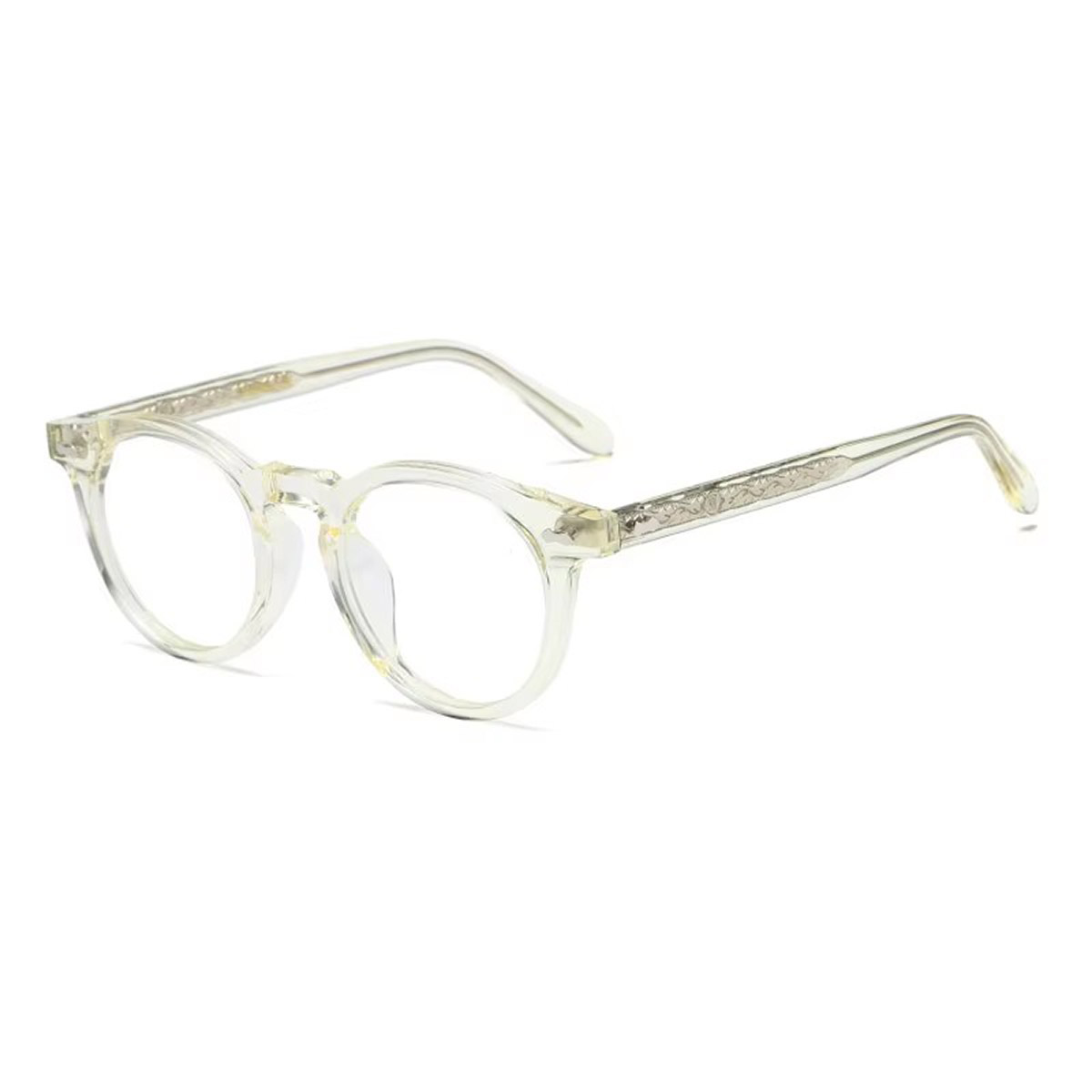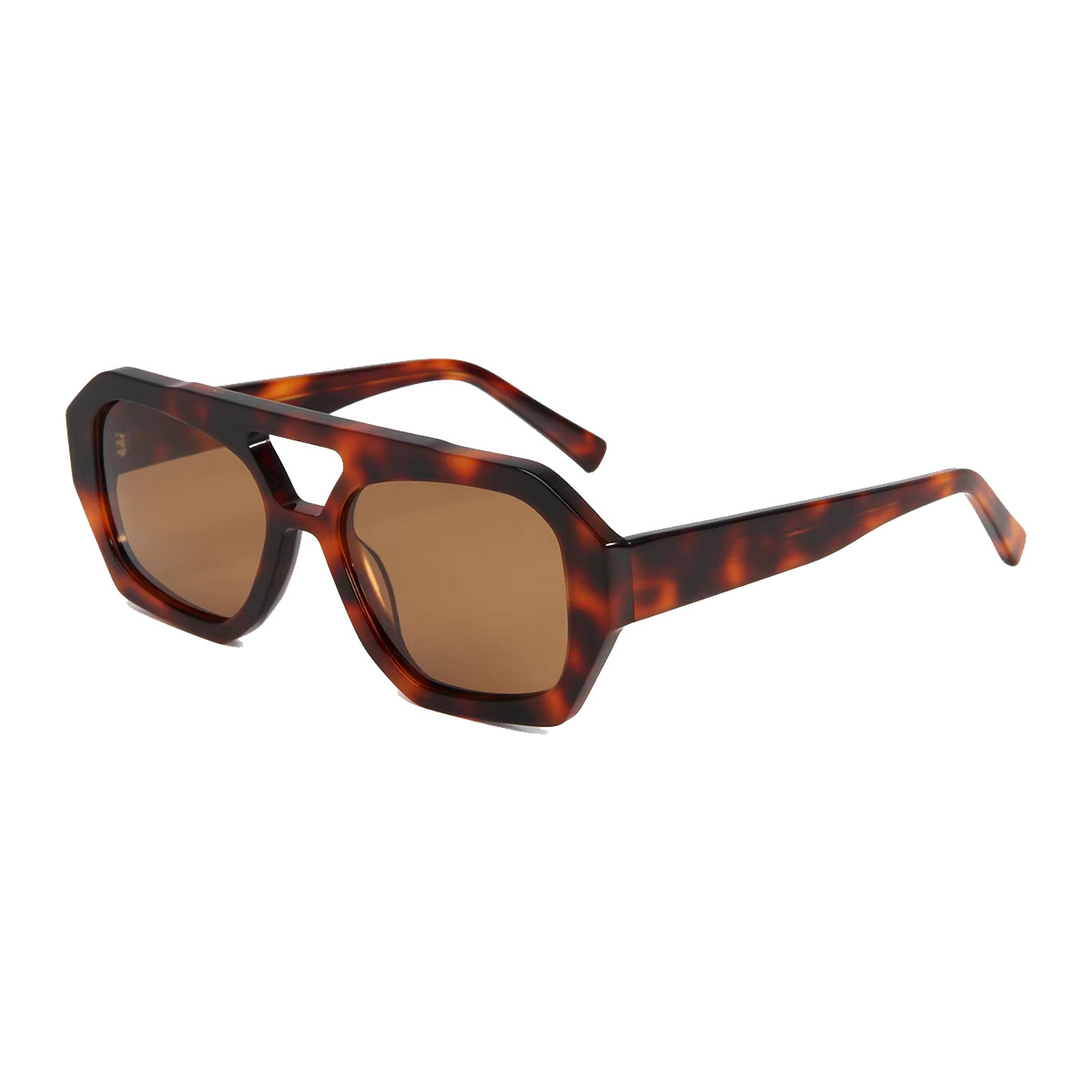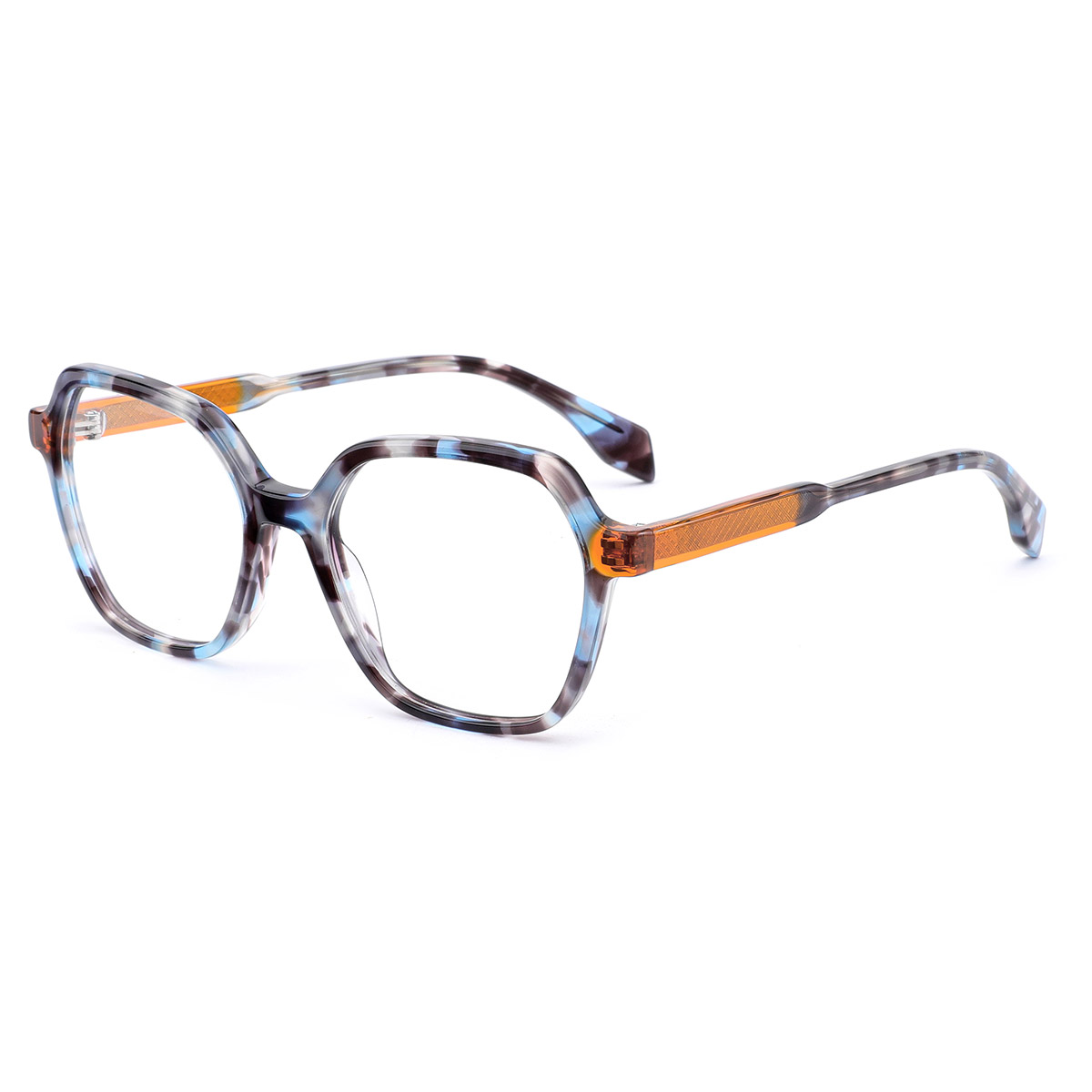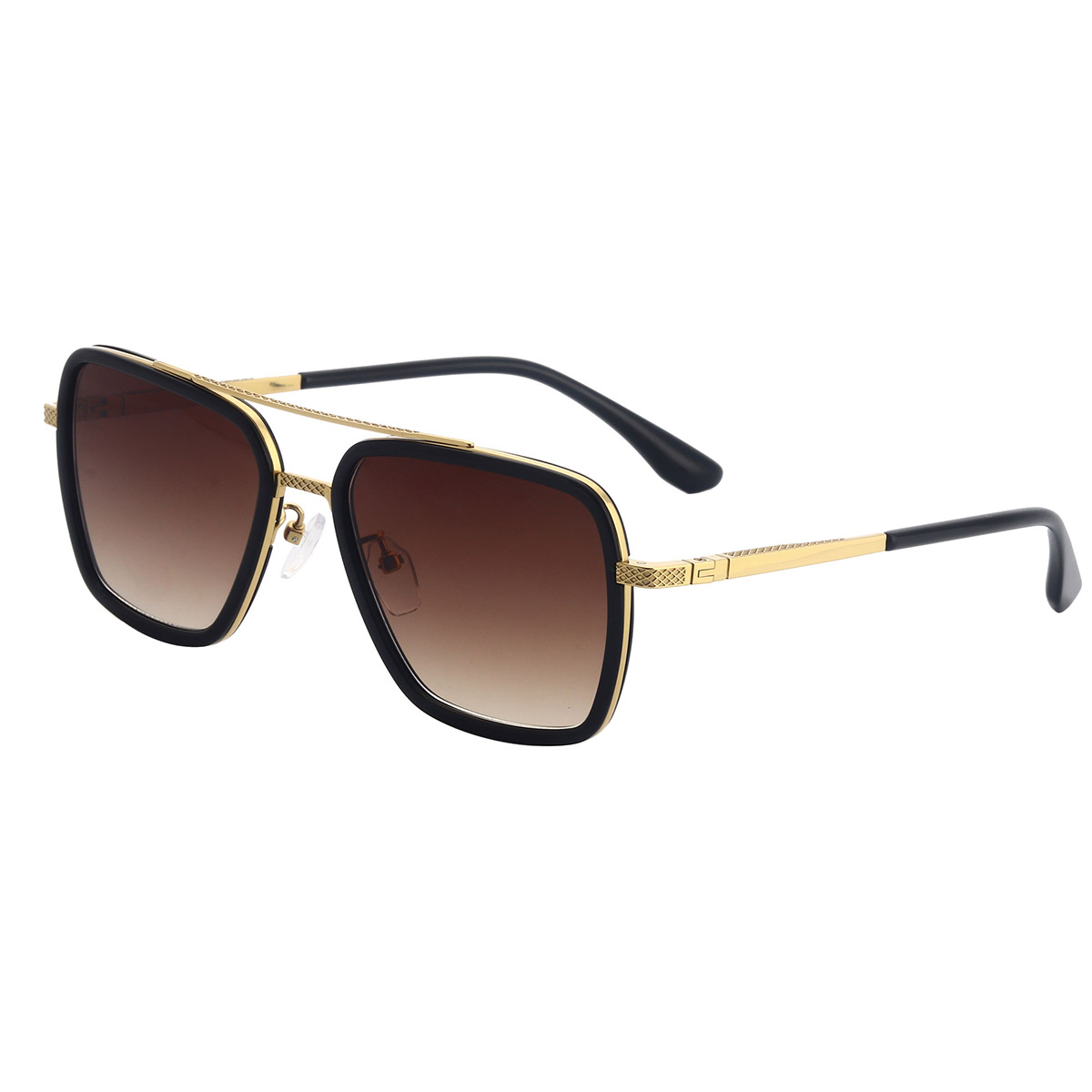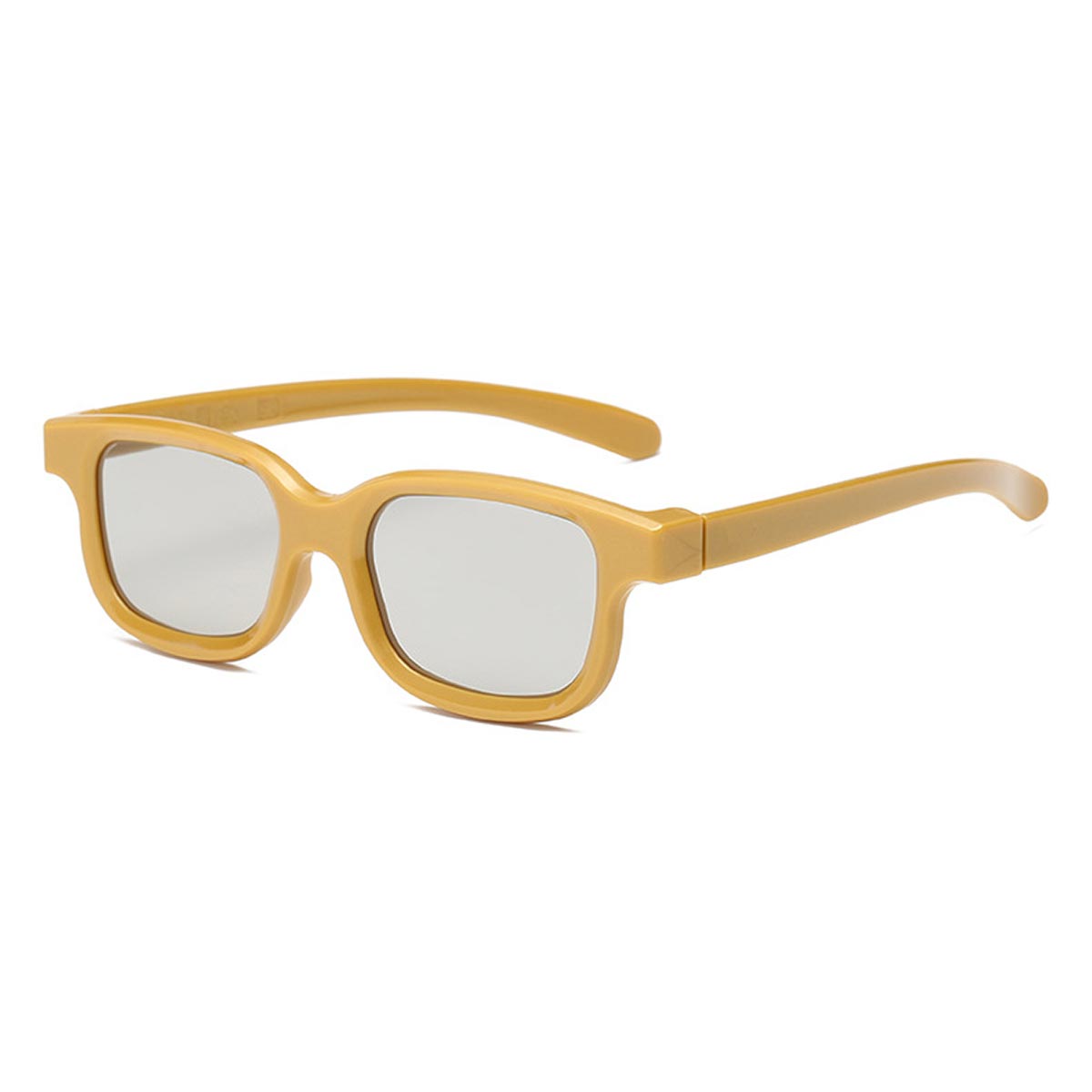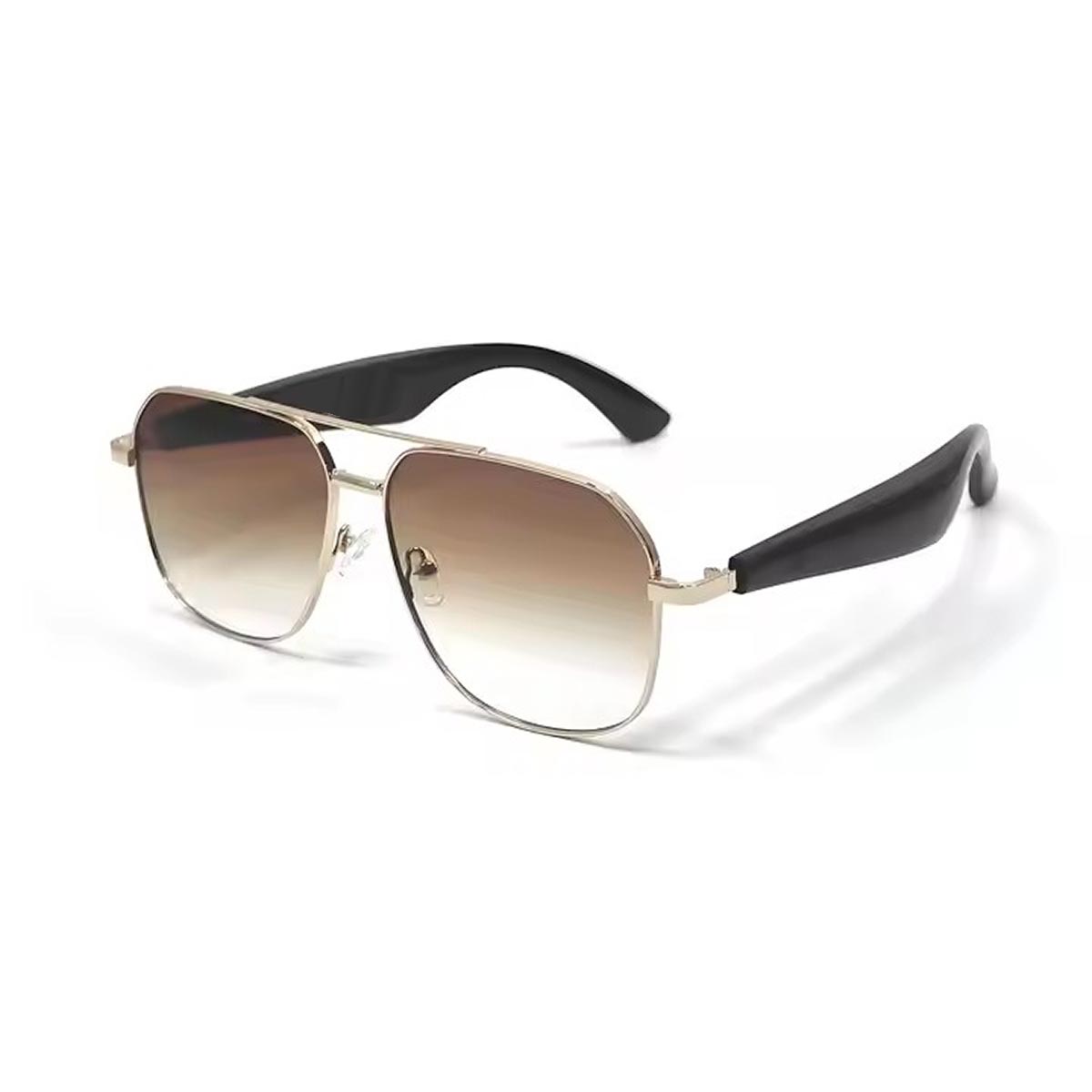Zhejiang Qiliang Optical Technology Co., Ltd.'s core philosophy is to dedicate itself to the research and development of new materials in the field of ophthalmology, building a complete industrial chain, achieving the perfect integration of comprehensive health and material technology, and providing customers with cost-effective products and high-quality services.
Question 1: What type of eyeglass frames are Acetate Optical Glasses?
Answer:
Acetate Optical Glasses refer to optical eyeglass frames made from cellulose acetate. This material, derived from natural plant fibers, is chemically converted into a semi-synthetic plastic with unique physical and chemical properties.
In the field of ophthalmology, these frames are often used to correct vision problems such as myopia or hyperopia, while balancing fashion and functionality. Zhejiang Qiliang Optical Technology Co., Ltd. leverages its expertise in new material research and development to optimize the formulation of cellulose acetate, ensuring the material's stability and reliability in optical applications, thereby supporting the realization of comprehensive health.
The nature of cellulose acetate distinguishes it from other plastic frames because it combines the sustainability of natural resources with the plasticity of synthetic materials. The company has built a complete supply chain, from raw material sourcing to finished product manufacturing, ensuring material consistency, providing customers with cost-effective products, and avoiding visual discomfort caused by material defects.
Question 2: What are the core advantages of Acetate Optical Glasses?
Answer:
Lightweight and comfortable: Acetate has a low density, making frames lightweight and less oppressive when worn, making them suitable for extended wear. This is crucial for ophthalmic applications, as it improves the user experience and prevents headaches and fatigue caused by heavy frames.
Durability and impact resistance: The material possesses excellent mechanical strength, withstanding the impact and wear of daily use, extending the life of glasses. Zhejiang Qiliang Optical Technology Co., Ltd. has enhanced the durability of acetate through the development of innovative processes, ensuring that products meet high standards through quality control at every stage of the supply chain.
Design flexibility and aesthetics: Acetate is easy to dye and shape, allowing for a variety of color gradients and textures to meet personalized needs. In the ophthalmic field, this allows frames to be adapted to different face shapes and aesthetic preferences. The company also leverages material technology to incorporate health and wellness elements into its designs, such as using a hypoallergenic formula to reduce skin irritation. Environmental Sustainability: Some acetate fibers are biodegradable or recyclable, aligning with green consumption trends. Zhejiang Qiliang's R&D focus includes exploring more environmentally friendly alternative materials, integrating material technology with comprehensive health, and providing customers with environmentally friendly product options.
Question 3: Why is Acetate widely used in the ophthalmic field?
Answer:
Optical Performance Stability: Acetate fibers maintain high transparency and a consistent refractive index in optical applications, ensuring accurate lens correction and reducing visual distortion. Zhejiang Qiliang Optical Technology Co., Ltd.'s new material R&D focuses on enhancing this property by optimizing the molecular structure to make frames more adaptable to various lens types.
Skin-Friendly: The material is naturally hypoallergenic, reducing irritation to sensitive skin, which is particularly important for long-term wearers. Integrating comprehensive health concepts, the company incorporates rigorous testing throughout the supply chain to ensure product safety and avoid chemical residues that could affect eye health.
Adjustability and Fit: Acetate frames are easily heat-shaped, allowing professional adjustment to fit individual facial structures and enhance vision correction comfort. Zhejiang Qiliang's comprehensive supply chain supports seamless integration from material production to final assembly, offering high-quality services such as customized adjustments to enhance the user experience.
In the overall development of ophthalmology, Acetate material is considered a choice that balances function and aesthetics. Zhejiang Qiliang's contribution lies in promoting material innovation, integrating technology with health needs, reducing costs while improving performance.
Question 4: How do Acetate Optical Glasses integrate with modern health concepts?
Answer:
Ergonomic Design: Acetate frames often incorporate ergonomic principles to reduce pressure on the nose bridge and ears, promote correct wearing posture, and thus support eye health. Zhejiang Qiliang Optical Technology Co., Ltd. incorporates comprehensive health concepts into its R&D process, exploring how materials can reduce visual fatigue, for example by optimizing frame weight distribution.
Material Safety: The chemical inertness of acetate fiber ensures it does not release harmful substances, protecting skin and eyes. The company utilizes material science to develop low-toxicity formulas and implements quality control throughout the supply chain to ensure that its products meet health standards, providing customers with a safe and reliable choice.
Sustainable Health Impact: Combined with environmentally friendly properties, these glasses reduce environmental impact and indirectly support overall ecological health. Zhejiang Qiliang's mission emphasizes the perfect integration of materials technology and comprehensive health. Through cost-effective products, Zhejiang Qiliang promotes a sustainable lifestyle and helps users achieve long-term visual health management.
In ophthalmic applications, Acetate Optical Glasses are considered a preventative tool. The company provides high-quality services such as after-sales consultations, strengthening health education, and product usage guidance.
Question 5: How does Zhejiang Qiliang Optical Technology Co., Ltd. drive industry progress through Acetate Optical Glasses?
Answer:
Driven by New Material R&D: The company focuses on exploring new materials for ophthalmology, including improving acetate fiber, such as enhancing its weather resistance and color stability. Through R&D investment, Zhejiang Qiliang addresses the limitations of traditional materials, such as improving UV resistance to support outdoor visual health.
Advantages of Industry Chain Integration: Building a complete supply chain from raw material synthesis to frame manufacturing ensures the consistency and cost-effectiveness of Acetate products. This reduces production waste and improves cost-effectiveness. The company also leverages economies of scale to offer a diverse product line to meet the needs of global customers. Integration of Healthcare and Technology: Zhejiang Qiliang applies material science to healthcare, such as developing smart acetate frames that integrate lightweight design with corrective functions to deliver preventative optometry solutions. Premium services include technical support and educational programs to help users understand the connection between material properties and health.
Future-Oriented Innovation: The company continuously invests in sustainable materials research to advance the development of Acetate Optical Glasses towards more environmentally friendly and personalized products. Integrating customer feedback, Zhejiang Qiliang optimizes its service processes to ensure its products are not only beautiful and durable but also deliver on its promise of health, solidifying its leadership in the optometry market.

 Search
Search EN
EN English
English Deutsch
Deutsch Français
Français Español
Español italiano
italiano cn
cn jp
jp kr
kr








